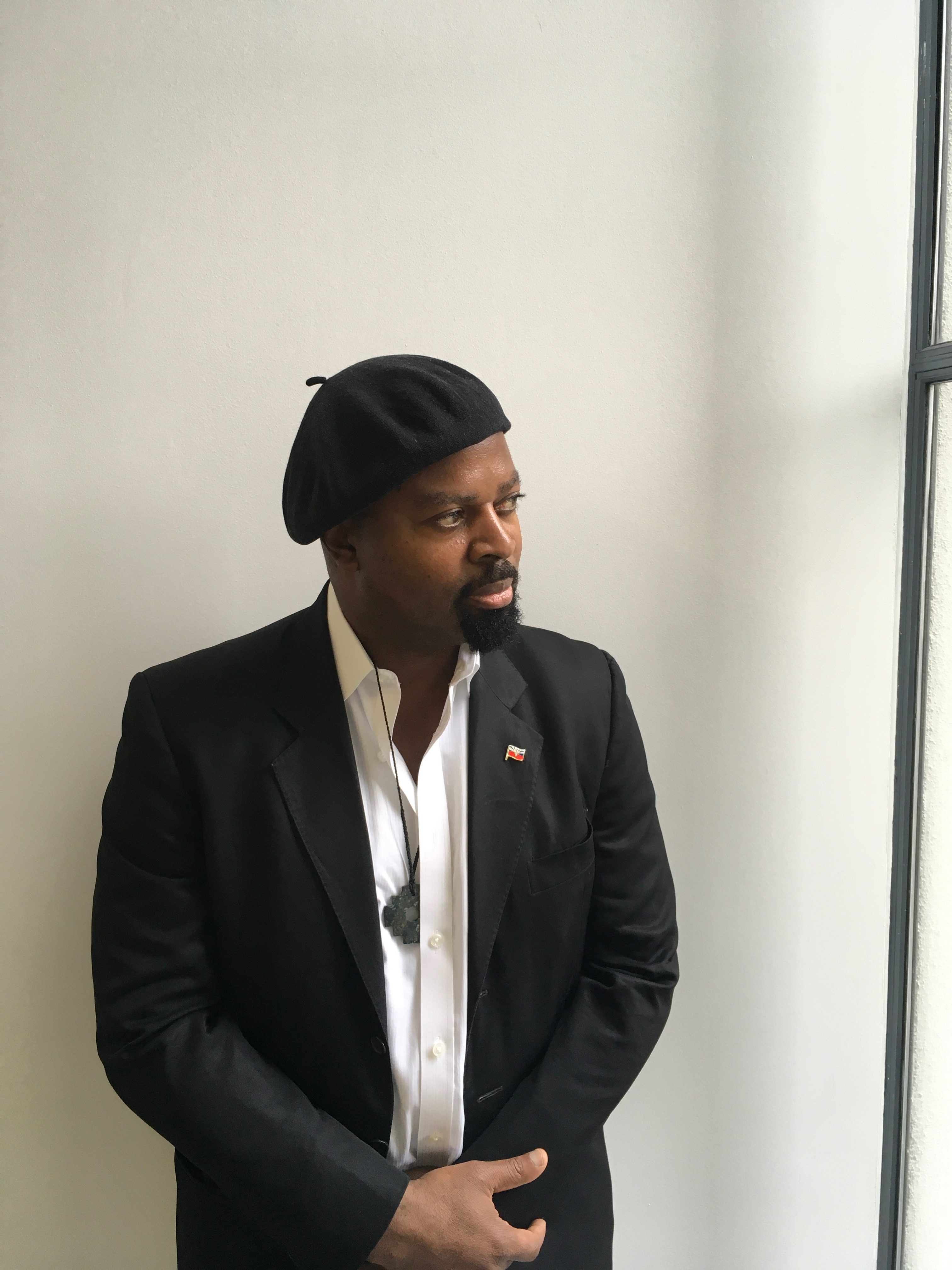
BY JEAN WEST
Philosopher, author, poet, spiritual journeyman and Booker prize-winner, Ben Okri, sees things differently than most of us.
Our realities, he tells audiences at Edinburgh International Book Festival, are directly corelated with our conscious choices, subjective views that can always be upgraded. His own vehicle is artistic expression.
In personal terms, he has used the maxim to turn work into play and just now, is trying to see life through the eyes of his beloved 22-month-old daughter. “I’m learning from her.”
For a man whose own early years were blighted by the brutal trauma of civil war in his native Nigeria, which threatened his very existence – this is something beautiful.
The power of play or in more Jungian terms, the strength of the imagination to sculpt our lives, has been sorely overlooked for too long, says the scribe, whose family spent much of the war hiding his Igbo tribe mother for safety. I’m still stunned by what people are able to do to their neighbours,’ he has said.
Ben Okri’s recent poetry, focussing on the Grenfell Tower fire, inspired a mural near his home in Shoreditch. In discussion of his latest work The Magic Lamp: Dreams of Our Age, he looks to a higher wisdom, that entertains the idea that we become what we think about, in attempt to right that wrong.
Focusing on creativity as a way of life for all, may seem naïve but the celebrated writer, who is at the festival with the beautifully illustrated work, a collaboration with Scottish-born, London-based artist, Rosemary Clunie, and Rise Like Lions, a new poetry anthology about political activism, believes we ignore it at untold expense.
Okri’s preoccupation with metaphysical themes, is perhaps legacy of his indigenous Nigeria, where people historically communed with unseen forces for spirit guidance, much like we turn to life coaches today. For Okri, whose family moved between the UK and Nigeria during his childhood, you sense the veil is always thin and these are beliefs rather than mere hunches.
His event begins with a beautiful poetry recital, accompanied by a remarkable dance by Charlotte Jarvis. Okri is a big fan of interdisciplinary arts. The poem exhorts us all to remember a purity of spirit, drummed out of us by traditional education, and life, that still offers a deep well of creative inspiration.
The writer of The Famished Road, Songs of Enchantment and Infinite Riches, talks about about “seeing but not really seeing, hearing but not listening,” with the elegance of a scripture, trying to reframe ancient wisdom for secular audiences, knowing full well that trying to rid teenagers of Iphones is a lost cause.
The Magic Lamp took half a decade to write and a decade to paint, and was, according to the 59-year-old author a relatively unconscious event, “the only book he decided not to write.”
Clunie, whose artwork has been compared with Joan Miro and Quentin Blake, would loan finished pieces to the writer and allow them to ‘live with’ him for a number of weeks before he would interpret them. “After a while, when I stop seeing it, I start seeing it,” he explains.
A series of paintings burgeoning with a swell of dreams and pastel colours, intangible and ethereal qualities, called variously, A Mystical Betrothal, Dialogue of Death with the Afterlife, and City of Enigmas, underwent this process until they had a book.
“I love painters because they are all about seeing,” says Okri enigmatically. “Seeing is very difficult…We open our eyes and see but we are constantly in the way of what we see.”
His verse responds to a past inner wholeness: “To think a thing was to have it realised. To desire was its instant fulfilment.” Like a poetic take on the Law of Attraction, he continues: “The river was a pure source of love. To breath was a constant source of ecstasy.”
Everything was easy in our pure state before we made it hard: “Before, we had no need to breath. Now we have fire in our lungs.”
Much like the lyric of Joni Mitchell – one of the ‘poets’ published along with Ernest Hemmingway and Bob Dylan in the new anthology, which he says saw him trawl 10,000 poems for 100 – ‘They paved Paradise and put up a parking lot,’ he continues to bemoan the loss of something pure.
What Okri loves about some of Clunie’s paintings is the space and light they offer. He says many of the great masters like Rembrandt and Picasso filled every bit of space on the canvas. But the space is like a literary pause, a place of invitation.
Ben Okri is happy to live his own dream. The fact that the world’s policy makers seem to have abandoned their’s makes him sad. He is a political being, how could he not be growing up where he did and living through injustice.
The Grenfell tragedy broke his heart and he is graphic in its description. He talks of having been able to smell the burning flesh of the victims. It was overwhelming and he needed to the world to know.
But seeing humanity as multi-dimensional and diverse and having access to this higher consciousness is the salve that soothes even the trickiest things that life can throw at this literary visionary.
This and his baby’s laugh.
The Magic Lamp: Dreams of Our Age – Ben Okri and Rosmary Clunie is published by Apollo, £16.99
Rise Like Lions – a collection of poems edited by Ben Okri is published by Hodder and Stoughton £18.99

